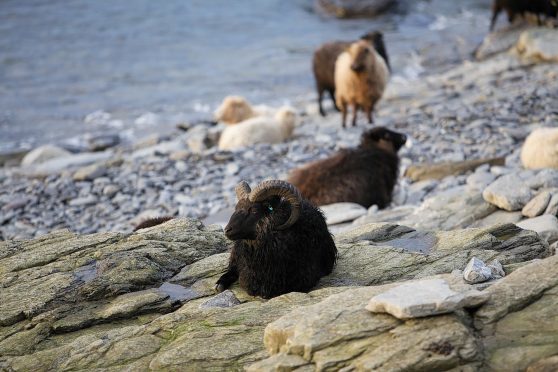Orkney sheep producers yesterday launched a bid to get European Protected Geographical Indicator (PGI) status for North Ronaldsay Wool and North Ronaldsay Mutton.
PGI status, which is already enjoyed by Orkney Island Cheddar, Scotch Beef and Stornoway Black Pudding, ensures that only goods produced in their area of origin can be labelled as such.
The latest bids from A Yarn From North Ronaldsay and the North Ronaldsay Sheep Court were welcomed by farm minister Richard Lochhead.
He said: “Scotland is world-famous for our wonderful produce, and people want to know they are buying the real deal. Achieving PGI status for both North Ronaldsay Wool and Mutton will ensure that consumers at home and abroad have a 100% guarantee of the product’s authenticity.
“We have a growing number of Scottish products which are protected under EU legislation and free from imitation. It’s very encouraging to see that more producers – and not just food producers – are now taking the initiative to apply for this status. It guarantees the product’s provenance and supports local producers. This scheme benefits brands synonymous with Scotland and I would urge others to look at taking this forward.”
In order to carry the North Ronaldsay name, wool and mutton must come from pure-bred North Ronaldsay native breed sheep.
The sheep live on the foreshore of the island and are clipped between June and August. Mutton from the sheep is said to be lean with a unique gamey flavour.
A Yarn From North Ronaldsay owner, Jane Donnelly, said: “Gaining PGI status would help justify the effort of a single remote community over hundreds, if not thousands, of years in maintaining this breed against all odds to the present day. The characteristics of the wool in both quality and natural colours are rapidly becoming renowned due to a keen network of fibre enthusiasts throughout the world. The PGI application will help to highlight this unique breed of sheep and so ensure for generations to come their continued survival.”
North Ronaldsay Sheep Court clerk, Dr Kevin Woodbridge, said: “It is the unique foreshore environment and the husbandry of the flock by North Ronaldsay islanders over generations that has created this breed. This cannot be replicated elsewhere and it is essential for the producers and consumers alike that the genuine product is guaranteed by the Protected Food Name status.”
The two applications were put together with support from Think Local – a three-year government funded project which aims to develop a commercial and sustainable food and drink sector in Scotland.
